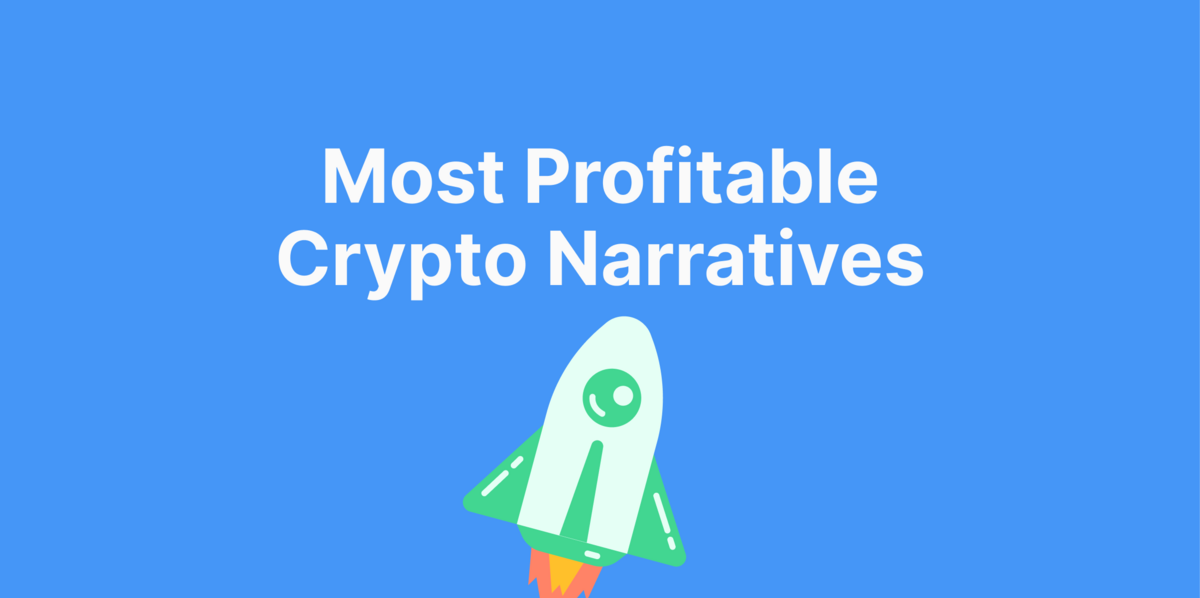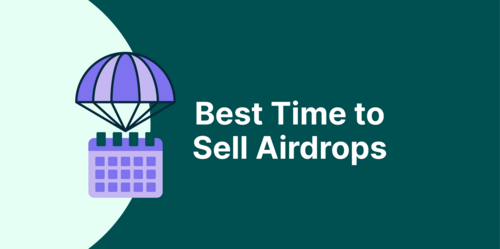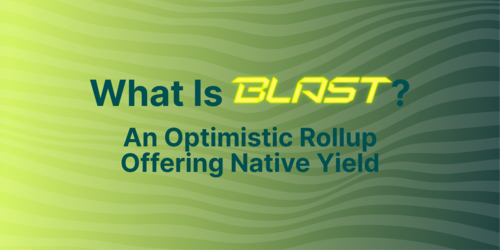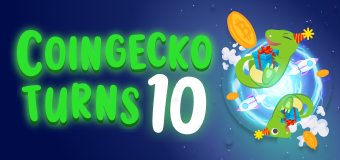What Are Governance Tokens?
Governance tokens confer the power of decision-making on the community where holders can vote on improvement proposals. Governance tokens also reflect the holders’ stake in the administration of a community-owned project.
Key Takeaways
-
Governance tokens are issued by cryptocurrency and mainstream projects that run a decentralized autonomous organization (DAO). Holding a governance token automatically makes the holder a member of the DAO.
-
DAO members can vote on improvement proposals concerning the project through the governance portal. The portal collates votes and the voting outcome is the sole determinant of the community’s next line of action in most cases.
-
Governance tokens can be designed for the sole purpose of voting on proposals or have extra utilities such as incentivization and ecosystem financing. Most contemporary governance tokens are tradable and the market price reflects the value of the government or community they represent.
-
Popular governance tokens include Maker DAO’s MAKER (MKR), Uniswap’s UNI, and Curve DAO’s CRV.

When a smart contract, decentralized application, or native blockchain project team wants to democratize and decentralize the decision-making process, it utilizes governance tokens to vest the power of decision-making in its community. Community-owned blockchain and cryptocurrency projects are commonly referred to as Decentralized Autonomous Organizations (DAOs). Most DAOs require a token to run, and these tokens are issued and endowed with obligations.
A governance token gives holders the right to vote on improvement proposals on the governance portals of DAOs. Governance tokens represent the holders’ stake in the administration of a community-owned project or government and holding a DAO's governance token is the sole criterion for being able to vote In some other cases, a few other criteria in addition to holding governance tokens could be considered. Ultimately, governance tokens are gateways to the administration of a community-owned project.
How Are Governance Tokens Used?
Holding a governance token is only the first step to participating in a DAO’s governance. While the process could vary for different DAOs, this is how they usually work.
DAOs define criteria for their voting system – this includes eligibility criteria and criteria for general and individual vote validity. For instance, a DAO could declare the whole voting process invalid if less than 40% of its members (or governance tokens in supply) do not participate in the voting. Using these predefined conditions, they develop a voting platform which usually includes a discussion forum and a snapshot portal.
Some projects also include the governance system in their core code, and the DAO is an inherent part of projects like this.
Proposals towards improving the community’s technology, general administration, or marketing are presented in a community forum, discussed, and subsequently put up for voting on the voting portal.
One way DAOs use governance tokens is by setting up their governance portal in such a way that holders can connect with their wallets and simply proceed to vote according to the number of tokens they own. The platform detects the number of tokens in connected wallets automatically or through a smart contract and lets members sign the vote-casting request from their wallets.

The second case involves a token lock-up process and is usually according to the Ve token model. ‘Ve’ is short for Voter Escrowed tokens. This system is usually adopted for tokens that have other utilities apart from voting. To participate, holders of the project’s governance tokens lock their tokens and receive Ve tokens as specified. The Voter Escrowed tokens are then used for the sole purpose of voting. The locked tokens are inaccessible until redeemed. Certain DAOs incentivize this act by offering additional voter’s APY to Ve token holders, as seen in Pendle.

In another instance, some DAO may let governance token holders stake their token to a validator (delegate) who votes on proposals on their behalf. Systems like this could be vulnerable to centralization but work when a collective voting system is desired. For instance, Optimism lets holders choose a delegate to vote for them when it comes to governance issues.

Once the member approves their votes, in any of these cases, the portal collates the votes in real time, ensuring transparency. The Community learns its fate through the portal and the proposal is duly implemented if it passes a community vote, else they are trashed or reviewed as the case may be.
According to data from CoinGecko, governance tokens control over $12 billion in market capitalization. But why do these tokens and the DAO matter?
Why Are Governance Tokens Important?
Decentralization
Through governance tokens, a DAO takes a shot at achieving a truly decentralized administrative system without necessarily deploying major technological changes to the core blockchain (for native blockchains) or their smart contract or dApp (for smart contract projects). For off-chain DAOs, governance tokens, and the DAO portal create a separate platform that allows the projects to concentrate on their off-chain administration. DAOs also get to dictate changes made to the core technology, but the technology remains the same until the proposal passes a community vote.
On-chain DAOs work in a similar way but are integrated into the core operation of the network or smart contract.
The decentralization brought by governance tokens is vested in the fair distribution of the governance tokens and the voting procedure. This is a major reason why most new DAOs resort to the free distribution of governance tokens through community airdrops. Through this process, every active member of the community gets a share of the project’s governance. The voting process is also inclusive with no geographic restrictions. In an ideal situation, governance tokens ensure that an unfiltered community verdict is made on every proposal that goes on to get implemented.
Easy Community Management
Cryptocurrency communities could grow to really huge figures. Depending on the level of success a blockchain and cryptocurrency project achieves, its community could grow to over a million members. Conducting a consensus on centralized platforms for this figure could be exhausting or to an extent, impossible. It also leaves space for errors, manipulation, and censorship. For instance, consensus conducted over social media and community channels like Telegram and Discord can be manipulated by bots and multiple accounts.
DAOs portals and governance tokens curb this to a great extent. The blockchain is immutable and token ownership cannot be manipulated. Members can only exert a voting power relative to the tokens in their custody as well as tokens delegated to them, and this cannot be changed. Members vote at their convenience, the project itself has little moderation to do, and the voting application handles a majority of the procedure. It returns a final and relatively more reliable result. This saves time and resources, especially for large communities.
Economic-Political Value
The value of a crypto asset is only a representation of the relevance of the project it is associated with. This is in accordance with the theories of demand and supply. For utility projects, the native token is expected to grow in value as the application gets adopted. This is the same for governance tokens. Governance tokens attach value to the political setup they represent. For governance tokens that double as utility tokens, this also reflects the utility as well. For instance, governance tokens of DAO projects like Uniswap reflect how much relevance the Uniswap exchange has gained over the years and how much influence the DAO has on the decisions made.
If the DAO loses its relevance, the governance token is also expected to lose its value, although this depends on whether the token is solely used for voting purposes.
Ecosystem Growth
Governance tokens could set the tone for a cryptocurrency and blockchain project, and mainstream DAOs as well. A working DAO is a good attraction for investors who wish to be part of an ecosystem where their voices are heard. This is the same for new and existing projects who want to join an ecosystem.
Elsewhere, an active DAO could also mean a profitable governance token as the asset’s value grows with the DAO’s relevance. This also appeals to traders and investors who wish to get involved for the long term. In all, it fast-tracks the growth of the project’s ecosystem.
Marketing and Incentivization
Cryptocurrency projects have witnessed a parabolic growth in popularity for issuing a governance token, especially when a portion of these tokens are given to early adopters or loyal members through an airdrop program. Speculations of issuing a governance token in the future have also steered new projects to early success as enthusiasts attempt to position themselves to benefit from the community distribution.
Thanks to the several instances where this has worked, governance tokens are evolving into an effective marketing strategy for cryptocurrency projects. Many governance tokens are also used to run projects’ incentivization through passive income programs. This can be in direct association with the DAO (rewards for staking Ve tokens) or other aspects of the projects like yield farming and staking rewards.
Governance tokens are important for the reasons mentioned above. But as an investor holding a governance token, there are some benefits that could emerge and also some disadvantages.
Advantages of Holding Governance Tokens
Let's look at some benefits of holding governance tokens:
Being an Active Member of the Community
Holding a governance token makes you a Bonafide member of the community and the DAO. It gives you the opportunity to have a say in how the project you are invested in is managed. This is unlike projects without such provisions, where the project team decides and the community chooses either to throw their weight behind the project or watch from a distance as these decisions impact the profitability of their project.
Democracy
While you might not have enough governance tokens to make every proposal go in your favor, a well-structured DAO ensures that your votes count and that your choices are not thwarted by third parties or the project team itself. Governance tokens and DAO helps in delivering a true decentralized democracy and makes you an inalienable part of it.
Profit Generation
Many governance tokens can also be traded. They reflect the government they represent and the adoption of any extra utility attached to them. Holding or routinely trading governance tokens might turn out to be a significant profit-yielding venture, especially if the project takes off. That said, this is not financial advice, and due research is recommended before investing in any cryptocurrency project.
Disadvantages of Holding Governance Tokens
Limited Utility
While some projects attempt to attach some extra use cases for their governance tokens, a good percentage state clearly that the governance tokens are only used for voting on the governance portals. In this situation, the token is very limited in use. In some cases, governance tokens are offered as an incentive, which can lead to unsustainable token emissions.
Examples of Governance Tokens
Governance tokens can be used by DEXs, NFTs, and other decentralized applications, such as MakerDAO, which enables the generation of DAI.
Uniswap’s UNI
Uniswap is a pioneer AMM and arguably the biggest decentralized exchange on the Ethereum blockchain and beyond. Launched first on Ethereum, Uniswap has also deployed on Layer 2 networks like Optimism and Arbitrum. Uniswap’s technology is being leveraged by many other decentralized exchanges on Ethereum and EVM-compatible networks.
Uniswap launched the UNI token and airdropped about 15% of the total supply to users who interacted with the platform prior to September 1st, 2020. The Uni token is used to vote on proposals hosted on the snapshot portal. Prior to this, the proposals are presented on the community forum and discussed with the community. According to information from the governance platform, each voting session lasts for 48 hours and a majority (yes) vote means a passed proposal. The proposal must however receive over 25,000 UNI votes to be valid.
MakerDAO’s MKR
Maker issues DAI, a decentralized stablecoin pegged to the value of the US dollar. DAI operates through over-collateralized loans and data from CoinGecko suggest that over $4.5 billion worth of DAI has been issued to date. Maker governs the affairs of the project and the DAI stablecoin through the MakerDAO with the MKR token as the governance token.
Changes to the Maker protocol or the running of the DAI stablecoin are put up for voting and MKR holders cast their vote in a 1:1 ratio. Holders must first deposit their tokens to the governance portal before proceeding to vote. A majority vote in support of a proposal means the vote has passed.
PancakeSwap’s CAKE
PancakeSwap is BNB Smart Chain’s biggest decentralized exchange and has expanded to the Ethereum and Aptos networks. CAKE is the utility and governance token of the platform, fueling the reward and the finance systems, and is also used on the governance portal to vote on changes to PancakeSwap operations.
PancakeSwap DAO uses the Ve token model. Cake holders lock their tokens and receive vCAKE relative to the number of tokens locked and the duration, and vCAKE is used to vote on improvement proposals. vCAKE is not transferable and can not be traded.
ENS (Ethereum Name Service)
ENS is a domain service on the Ethereum blockchain that turns the hexadecimal wallet address into readable names. To create its DAO, ENS airdropped the ENS token to its early adopters in November 2021. The ENS DAO adopts the vote delegation system. ENS holders delegate their voting power to a selected entity, and the delegate votes as a representative of the delegators. According to information from the platform, delegators can review their delegation anytime they wish.
Proposals are discussed on the project’s forum and subsequently hosted on the snapshot portal where delegates vote. Each delegate vote is equal to a total of ENS voting power delegated to them. For the voting to be valid, at least 1% of the DAO tokens must participate in the voting and at least 50% of the participants must vote in favor of the proposal to get approved.
Final Thoughts
Cryptocurrency projects that want to uphold a decentralized system adopt governance tokens and develop governance portals to guide their decision-making process. This has worked in many notable cases where the projects, though governance tokens have found a way to manage their communities and ensure that every investor has a say in how the project is run.
But the big question lies in the impact of governance tokens on these projects and if DAOs have really worked. The political relevance of governance tokens continues to struggle against the financial potential they hold. Recent developments have seen cryptocurrency enthusiasts and investors flock towards governance tokens and potential DAOs with the sole aim of earning through the issuance of governance tokens through potential airdrops. Beyond profit hunters, financially viable community members can acquire as many tokens as they wish from the market and influence community decisions because they hold a significant percentage of the issued governance tokens.
However, governance tokens are still holding strong, and despite the progress made so far in this sector, developments in the future could reshape things, and this could have some financial implications for investors. It is therefore recommended that investors do thorough research before investing in governance tokens. Also, note that this article is only for educational purposes and not financial advice.

Joel is deeply interested in the technologies behind cryptocurrencies and blockchain networks. In his over 7 years of involvement in the space, he helps startups build a stronger internet presence through written content. Follow the author on Twitter @agboifesinachi









 Or check it out in the app stores
Or check it out in the app stores